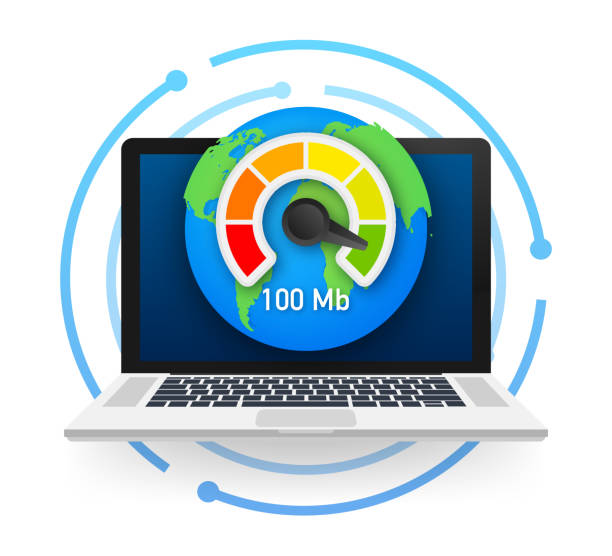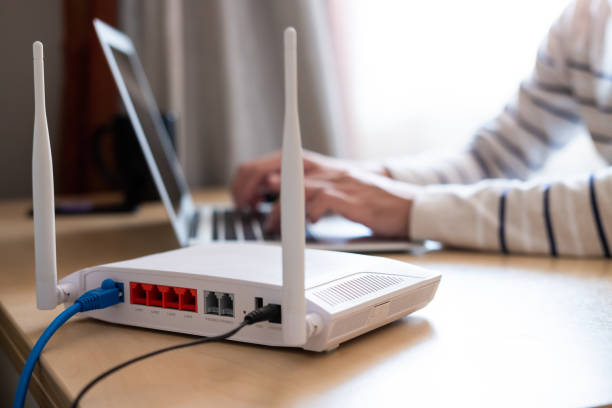In the digital age, where the internet has transformed the way we live and interact with people, internet performance is very important for daily activities. From streaming movies to online gaming, and conducting business meetings to online shopping, the internet is critical for everything.
However, among the wealth of information, several myths persist about what influences internet speed and quality. Let’s debunk some of the top internet performance myths to help you navigate the digital landscape more effectively.
Internet Performance Myths
In today’s hyperconnected world, misconceptions about internet performance myths are numerous. That is why, understanding these myths is essential for optimizing your online experience and making informed decisions about internet services. Let’s dig in!
Myth 1: Faster Internet Equals Better Performance
The Reality:
It’s a common belief that faster internet automatically translates to better performance. While faster speeds do offer benefits for many activities like streaming high-definition videos or downloading large files, but they don’t always guarantee an overall better experience.
Factors like latency, which is the time it takes for data to travel from your device to the server and back, and jitter, which refers to variations in latency, also significantly affect internet performance. In some cases, a slower but more stable connection may provide a smoother experience compared to a faster but less reliable one.
Myth 2: Bandwidth Alone Determines Internet Speed
The Reality:
Bandwidth, measured in bits per second (bps), is the maximum rate at which data can be transferred over a network connection. Well, having sufficient bandwidth is important for accommodating multiple devices and data-intensive activities, but it’s not the sole element of internet speed.
Moreover, latency, which refers to the delay between sending and receiving data, plays a crucial role, particularly in real-time applications like online gaming and video conferencing. Additionally, network congestion, where too many devices compete for bandwidth on the same network, can significantly impact internet speed regardless of the available bandwidth.
Myth 3: Wi-Fi Signal Strength is the Sole Determinant of Internet Quality
The Reality:
Well, we all know that a strong Wi-Fi signal is essential for stable wireless connectivity, but it’s not the only factor that influences internet quality. Interference from other electronic devices, such as microwaves, cordless phones, and wires, can disrupt Wi-Fi signals and reduce performance.
Additionally, the distance between your device and the wireless router, as well as the presence of obstacles like walls or furniture, can affect signal strength and overall internet quality. Therefore, achieving optimal Wi-Fi performance involves not only ensuring a strong signal but also minimizing interference and optimizing router placement within your home or office.
Myth 4: Internet Speed Test Results Reflect Actual Performance
The Reality:
Internet speed tests are commonly used to measure the speed of your internet connection by sending and receiving data between your device and a remote server. While these tests can provide useful insights into your connection’s capabilities at a given moment, they may not always reflect your actual internet performance in real-world scenarios.
Factors such as network congestion, server load, and the quality of the connection between your device and the test server can all influence speed test results. Therefore, it’s essential to understand speed test results with caution and consider other factors that may affect your internet experience, such as latency and packet loss.

Myth 5: Closing Background Apps Improve Internet Speed
The Reality:
Well, it is a common misconception that closing background apps can improve internet speed by reducing network congestion and freeing up the system. However, closing unnecessary apps and processes can help improve your device’s performance and memory usage, but it will not necessarily lead to faster internet speeds.
Internet speed is primarily determined by factors such as bandwidth, latency, and network congestion, which are independent of the applications running on your device. Though, closing bandwidth-intensive apps or downloads that are actively consuming network resources may free up bandwidth for other activities and potentially improve your overall internet experience.
| Call 866-861-4084 for Internet Deals |
Myth 6: Upgrading to Fiber Optic Internet Guarantees Top Performance
The Reality:
Fiber optic internet offers several advantages over traditional broadband technologies, which include higher speeds, lower latency, and greater reliability. On the other hand, while fiber optic internet can provide excellent performance under ideal conditions, its speed and reliability may still be affected by factors such as network congestion, equipment limitations, and service provider policies.
In addition, the actual speed and performance of fiber optic internet may differ depending on your location, the quality of the infrastructure, and the level of service provided by your internet service provider (ISP). Therefore, while upgrading to fiber optic internet can improve your internet experience in many cases, it may not always guarantee top performance under all circumstances.
Myth 7: Web Browsers Have No Impact on Internet Speed
The Reality:
Opposing popular belief, web browsers can have a significant impact on internet speed and performance. For instance, factors such as browser extensions, plugins, and settings can influence how quickly web pages load and interact with online content. For example, ad-blocking extensions can reduce the amount of data transferred over the network, which will lead to faster page load times.
Likewise, browser caching and prefetching techniques can optimize the loading of frequently visited websites by storing and preloading content in advance. Hence, choosing a fast and efficient web browser, optimizing its settings, and regularly updating it can help improve your overall internet experience.
Myth 8: Internet Speed is Consistent Across All Devices
The Reality:
Internet speed can fluctuate knowingly across different devices, even when connected to the same network, due to factors such as hardware capabilities, network adapters, and software configurations. For example, older devices with outdated hardware or network adapters may not support the latest wireless standards or encryption protocols, resulting in slower internet speeds compared to newer devices.
In the same way, devices with limited processing power or memory may fight to handle bandwidth-intensive activities like streaming high-definition videos or online gaming. That is why, it’s essential to consider the capabilities of your devices and their compatibility with your network infrastructure when evaluating internet speed and performance.

Tips for Improving Internet Performance Myths
Optimize Router Placement:
- Position your router centrally: Place your router in a central location within your home or office to make sure that your Wi-Fi signals reach all areas effectively. Also, avoid placing it near walls, metal objects, or electronic devices that can interfere with signal strength.
- Elevate your router: Put your router on a high shelf or mount it on a wall to maximize signal coverage and reduce interference from obstructions.
Update Firmware Regularly:
- Check for firmware updates: Regularly check your router manufacturer’s website for firmware updates and install them as soon as they become available. Moreover, firmware updates often include performance enhancements, security patches, and bug fixes that can improve overall router performance.
Limit Background Downloads:
- Schedule downloads during off-peak hours: If possible, schedule large downloads, software updates, and backups to occur during off-peak hours when network traffic is lower. This can help prevent network congestion and ensure smoother internet performance for other activities.
- Use download managers: Make sure that you use download manager software that allows you to prioritize and schedule downloads, control bandwidth usage, and resume interrupted downloads. This can also help optimize bandwidth usage and prevent downloads from monopolizing your internet connection.
Monitor Network Usage:
- Use network monitoring tools: Install network monitoring software or apps on your devices to monitor network usage, identify bandwidth-hungry applications, and troubleshoot performance issues.
- Set bandwidth limits: Configure your router to prioritize network traffic and allocate bandwidth to specific devices or applications based on their priority level. This can help ensure that critical activities like video streaming or online gaming receive sufficient bandwidth without being slowed down by background tasks.
Optimize Wi-Fi Settings:
- Choose the right Wi-Fi channel: Use a Wi-Fi analyzer tool to identify the least congested Wi-Fi channels in your area and configure your router to use them. And try to avoid using auto-channel selection, as it may not always select the optimal channel for your network.
- Enable Quality of Service (QoS): Enable QoS settings on your router to prioritize certain types of traffic, such as VoIP calls or online gaming, over others. This can help reduce latency and ensure a smoother online experience for critical applications.
Use Ethernet Connections:
- Connect via Ethernet cables: Whenever possible, use Ethernet cables to connect devices directly to your router or modem. Because wired connections offer faster and more stable speeds compared to Wi-Fi and are less susceptible to interference and signal degradation.
- Invest in quality Ethernet cables: Use high-quality Ethernet cables that meet or exceed industry standards to ensure reliable data transmission and minimize signal loss over long distances.
Secure Your Network:
- Use strong encryption: Enable WPA2 or WPA3 encryption on your Wi-Fi network to secure your connection and prevent unauthorized access. Use a strong, unique passphrase that combines letters, numbers, and special characters to enhance security.
- Disable guest networks: If you don’t need a guest network, disable it to reduce network overhead and potential security risks. Guest networks can consume additional bandwidth and introduce vulnerabilities if not properly secured.
Opt for Quality Hardware:
- Invest in a high-quality router: Remember to choose a router from a reputable manufacturer that also offers features like dual-band support, beamforming technology, and advanced security features. A high-quality router can provide better Wi-Fi coverage, faster speeds, and improved reliability compared to budget models.
- Consider mesh Wi-Fi systems: If you have a large home or office with multiple dead zones, consider investing in a mesh Wi-Fi system. Mesh systems use multiple nodes to create a seamless Wi-Fi network with extended coverage and better performance throughout your space.
| Call 866-861-4084 for Internet Deals |
Conclusion
In conclusion, debunking internet performance myths is crucial for optimizing online experiences and maximizing productivity. By understanding the factors that influence internet speed and quality, users can take proactive steps to enhance their digital connectivity and enjoy seamless online interactions.
Frequently Asked Questions
Do internet speed boosters really work?
While some software claims to boost internet speed, their effectiveness can vary, and they may not address underlying network issues.
Can changing DNS servers improve internet performance?
Yes, switching to faster and more reliable DNS servers can improve internet performance by reducing latency and DNS lookup times.
Is a wired connection always faster than Wi-Fi?
In general, wired connections offer faster and more stable speeds compared to Wi-Fi, especially over longer distances or in environments with interference.
Does upgrading my internet plan guarantee better performance for online gaming?
While higher-speed internet plans can reduce lag and latency in online gaming, other factors like server location and network congestion also influence gaming performance.
How can I test my internet speed accurately?
Use reputable speed testing websites and perform multiple tests at different times of the day to get a more accurate picture of your internet performance.

Meet Jennifer Harper, a wordsmith extraordinaire who has been shaping the digital landscape with her creative prowess for the past two years. Not just a content writer; she is a storyteller who brings the content to life. Her passion for internet trends, memes, and the ever-evolving world of entertainment is evident in every piece she creates. Jennifer doesn’t just follow trends; she sets them.
